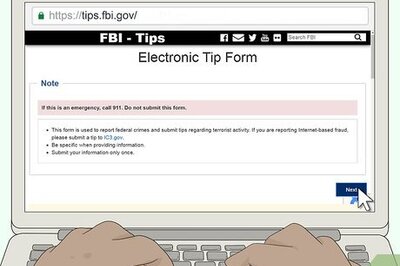
views
The Madras High Court recently observed that although ‘the Corrupt Public Servants (Forefeiture of Property) Bill’ had been forwarded to the Ministry of Law and Justice in 1999, it has been kept in cold storage for the past 24 years.
“…under these circumstances, in order to initiate effective measures to prevent corruption, Parliament has to think about framing stringent laws,” said a single-judge bench of Justice SM Subramaniam.
The court was dealing with a case where government employees/police officials had raised allegations of huge corruption against each other.
While passing the order in the matter, the judge made significant observations on the corruption among public servants in the country.
He said, “Corruption in India has become deep-rooted and is galloping unchecked and unhindered…There is little doubt that corruption in present-day India pervades all levels and all services, not even sparing the Indian Administrative Service, Indian Police Service and Judicial Service.”
Justice Subramaniam pointed out that although there are service rules in place applicable to both police officials and other government servants to keep a check on their asset accumulation, it is doubtful whether such rules are followed in a strict sense. “…so as to ensure that the disproportionate assets, if any accumulated, are periodically monitored and actions are initiated in order to control corrupt activities amongst the public servants,” he added.
He held that to fight against corrupt activities, consistent monitoring and stringent actions are warranted.
THE BILL
The judge further highlighted that the Corrupt Public Servants (Forfeiture of Property) Bill, which was presented by former Chairman of Law Commission of India Justice BP Jeevan Reddy, strictly deals with the deleterious effect of corruption.
He pointed out that the Bill also underlines the inadequacy of the existing law and the proposed measures to tackle the evils of corruption.
While underscoring some more salient features of the proposed Bill, Justice Subramaniam stated that in the current day scenario, it is imminent for Parliament to look into the evil effects of corruption and do the needful, if necessary, by considering the Bill submitted by Justice BP Jeevan Reddy.
“Politician-bureaucrat nexus gives hope to the corrupt officials to escape from the clutches of law. Corrupt officials are confident of escaping punishment since implementation of corruption laws in our great nation is undoubtedly weak,” opined the judge.
THE CASE
The matter at hand pertained to the allegation of accumulation of disproportionate wealth by a government employee against whom action was initiated.
The accused government employee filed a plea before the high court to quash the case against him. Through his plea, he also made allegations of corruption against some officers of the police.
Justice Subramaniam refused to grant the relief sought by the accused, and instead, directed the trial court to expedite the trial and dispose of the case.
Apart from that, he ordered an inquiry against the police officers upon whom the accused government employee had made corruption allegations and directed for appropriate actions if the allegations are found true.

















Comments
0 comment